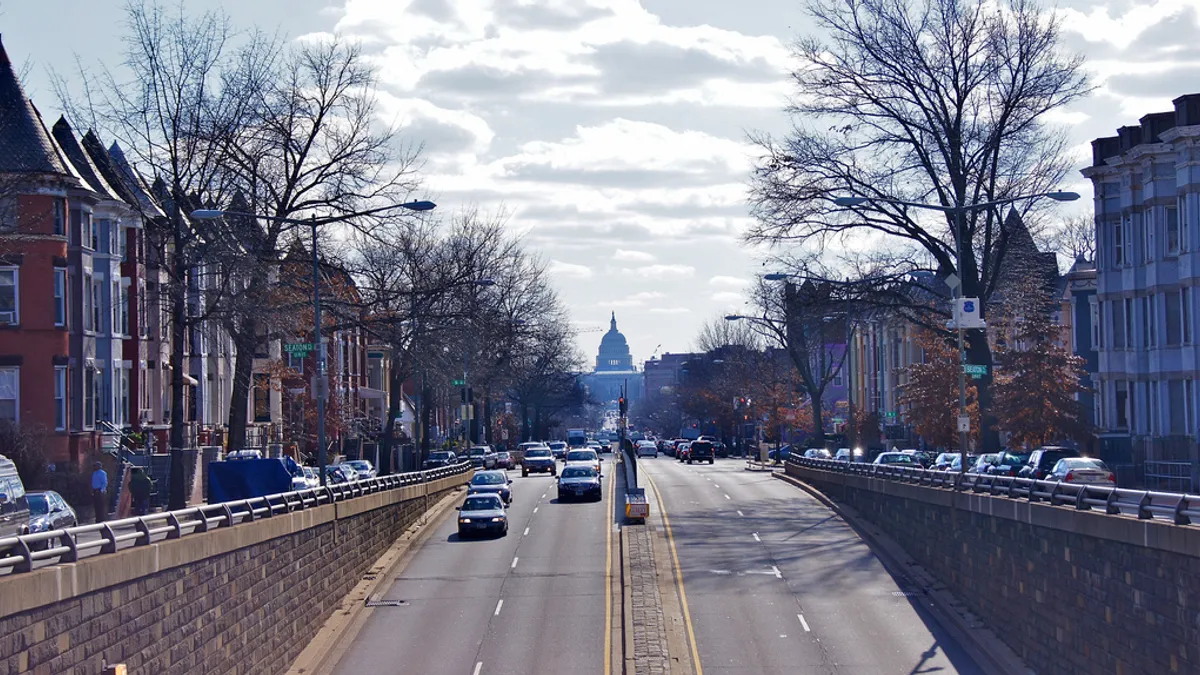Dive Brief:
- Washington, D.C. is moving to broaden its ban on expanded polystyrene products. In the first of two votes, the city council yesterday backed the new bill (the "Polystyrene Food Service and Loose Fill Packaging Prohibition Amendment of 2019"), with a second vote unscheduled but likely to occur in the next two months.
- Under the new legislation, the city will bar retail sales of any "expanded polystyrene food service product or polystyrene loose fill packaging." That includes items like packaging peanuts, often used in delivery practices, along with disposable coolers or plates.
- The bill is expected to pass and would take effect on July 1 as written. Councilmember Mary Cheh said in a statement to Waste Dive the new bill would target pollution that "adversely affects local wildlife, and, once it enters the food chain, poses a serious risk to human health."
Dive Insight:
D.C. is one of a number of cities and states increasingly targeting expanded polystyrene, often referred to as Styrofoam, along with other plastic-based components of the waste stream.
The city previously banned most expanded polystyrene in 2016, later requiring all foodservice ware to be recyclable or compostable in 2017 and banning plastic straws and stirrers in 2018. Like the new amendment, those steps build on the Sustainable D.C. Omnibus Amendment Act of 2014, which sought to address growing litter issues in the city. D.C. has also charged 5 cents for plastic bags for a decade and is now eyeing a major "zero waste" bill that could significantly affect recycling and organics diversion.
That last bill is still in the committee process, but the city is moving forward with its scrutiny of plastics. Cheh said existing D.C. law failed to account for the full extent of potential expanded polystyrene pollution, something the new amendment addresses.
"This update closes a loophole that undermines the intended effect of the current law," she said.
D.C.'s expanding efforts to address the presence of expanded polystyrene in the city's retail sector reflect a growing trend. Cities are increasingly taking a multi-pronged approach to policy, Jennie Romer, a legislative associate with the Surfrider Foundation's plastic pollution initiative, told Waste Dive.
"[It's often] a trifecta of plastics bills," she said, noting that officials usually target straws, bags and expanded polystyrene items as they weigh more comprehensive and broad legislation. "The trend [now] is to go beyond the foodware at restaurants and look at things like retail or rigid polystyrene."
According to Surfrider's nationwide tracker of polystyrene ordinances, many of the most successful efforts have been concentrated in California and Massachusetts. Romer said "most of the action right now" is happening in those areas, although she expects to see that change as cities become more aggressive about their waste reduction goals.
While environmental activists have been supportive of those efforts, reactions from industry players have been mixed, with plastics groups arguing cities should invest more in recycling without banning their products. Many have pushed back against depictions of plastics as "single-use" in particular.
So far that resistance isn't halting momentum. In May 2019, Maine became the first state to approve a ban on the sale of expanded polystyrene containers, with the law set to take effect in 2021. Maryland will ban expanded polystyrene food and beverage containers beginning in July. New York, meanwhile, is seeking to follow the example set by New York City, banning polystyrene food containers along with packing peanuts.
Romer sees trends moving beyond these products in the future and pointed to Berkeley, California – home to the original expanded polystyrene ban – as an example. This month an ordinance went into effect requiring a $0.25 cent fee on disposable cups.














